The Illusion of Freedom
I once went to Berlin for a few weeks and worked with a guy who grew up there in the Soviet Zone. I was fascinated by his stories of living under communism in a cold, industrialized city before the fall of the wall. The thing that struck me the most about the conversations was that he expressed it wasn't nearly as bad as I imagined. They still had parties and punk rock in the '80s, albeit more covertly than your average Westerner. He then went on to tell me that after the wall fell, he traveled to America for the first time for a music tour. It was there on his second or third day that he had a run in with the police on the side of the highway that was worse than anything he had ever experienced in East Germany. The discussion wrapped with him extolling the belief that the U.S. is a brutal police state not much better than the East Germany where he was raised.
A few days later I was in the back of a car driving down the Autobahn, drinking a beer, and trying to explain to a carload of Germans why you could never do that in the U.S. All I was getting in return were confused stares and unanswerable questions. "What does it matter if zi passenger is drinking beer if zay aren't driving?" The best I could offer is, "That's just the rules." I'm guessing from the smattering of German conversation between them that followed, they were all in agreement that our rules are stupid. Between their confusion over such obvious freedoms as drinking responsibly wherever you'd like, and stories of East Germany as compared to American cops, it really got me thinking about this bill of freedom we've been crammed down our throats our whole American lives.
I know, many are fully aware of this fact already and now more than ever. Between Patriot Act spying, whistleblowers on the run, and the general sense that our corporate-influenced government no longer has our best interests in mind, it's almost the only issue many Americans can agree on these days. That's not to say we don't get freedoms, but most can admit there's an exaggeration to the word that's undeniable. For me, personally, I can't help but think of it when any talk about guns gets put on the table. Of course for many, guns -- and the right to own them -- are the physical manifestation of freedom. They see the right to bear arms as the great hope between a citizen and a government that yearns to control them. I, on the other hand, see guns as nothing more than a distraction from the lack of many true freedoms.
Even wildly entertaining the idea of a full scale revolution by the gun owners, they are talking about defending their rights against the world's largest military. Even if every other country combined lent Syrian-rebel style support to the citizens, they would still be outgunned. So the idea of owning guns to defend against our government is just absurd, never mind the fact that if guns were truly dangerous to the governments agenda, they would have been banned long ago. The only thing gun ownership is truly effective for is giving the owners a sense of freedom. The gun is the proverbial bone tossed to a threatening -- yet mostly benign -- populace who cling onto them with the belief they are defending something they don't realize they've already lost.
Including suicides, there have been over 300,000 gun deaths since 9/11. That's 100x more than the catastrophic event used as the impetus for two wars that have cost countless dollars and deaths for over a decade. Yet this government can't even pass a basic background-check bill to fight that threat. The fact is, guns aren't going anywhere, and if someone changes their mind about that -- which if they haven't already, they never will -- then there won't be much you can do about it. That is, unless the military joins in on the coup, at which point we'd really be fucked. I personally don't think guns have any purpose in a functioning society, but the fact is their usefulness at sedating the masses simmering unrest is unparalleled, and for that reason alone will be unchallenged for years to come.
I wish people would understand this and see their guns for what they are, nothing more than shiny, (loud and deadly) distractions from the real issues that separate the people from the government. They are nothing more than shallow expressions of freedom smoke-screening the fact that we're far from free and the whole world knows it but us.
The ironic part is that the corporate powers that influence the government don't fear anyone picking up their guns, as they are experts in dealing with that - the only thing pointing a gun at someone does is gives them a reason to shoot you. Their fear is that you might actually put the guns down and explore other -- more effective -- options to experience your freedoms, some of which might not fit into their program as well as a factory worker getting screwed by the banks, the taxes, and the job, while contently expressing himself by blasting a few drained Bud bottles with his .22 on the weekend. And that would truly be revolutionary.
"None are more hopelessly enslaved than those who falsely believe they are free." -- Johann Wolfgang von Goethe




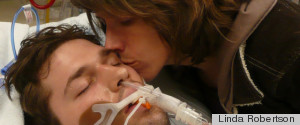





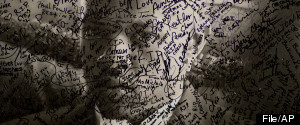









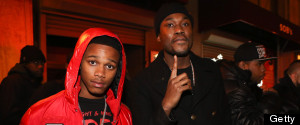

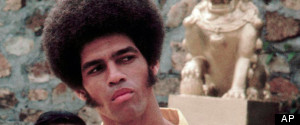
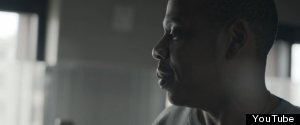
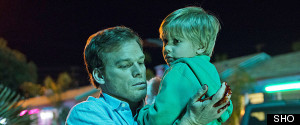
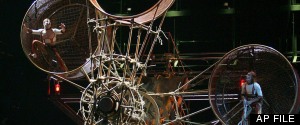


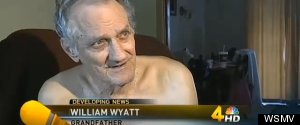
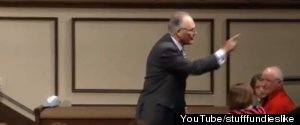
Steven Nereo | July 3, 2013 11:39 AM ET